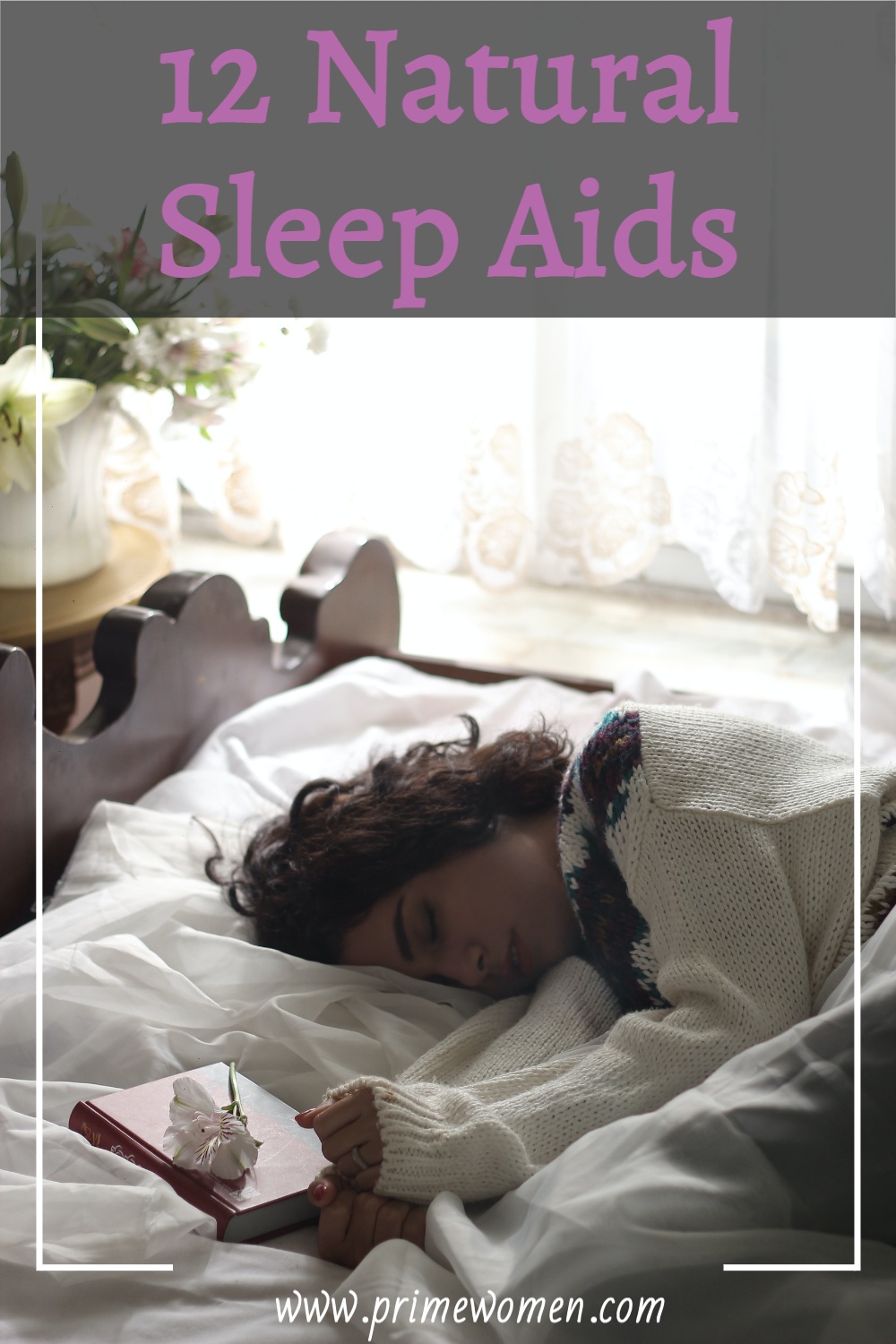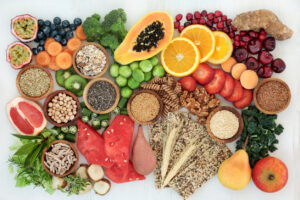Women are slightly more likely to experience sleepless nights than men, even through their childbearing years. As we hit menopause, the number of women who experience insomnia in one form or another skyrockets. Somewhere around 40% of women in their late 40s and early 50s report difficulty falling or staying asleep.
While there are several prescription sedatives available, they often have side effects and aren’t a long-term solution to the problem. For some people, taking sedative-hypnotics may cause sleepwalking, daytime drowsiness, and memory problems. Most of these medications affect the liver and can be habit-forming, making it difficult to quit taking them.
From sleep-friendly foods to essential minerals and amino acids, the natural solutions to sleepless nights are also plentiful and often have fewer side effects.
Sleep Friendly Foods:
Soy-
Soy is particularly beneficial for women experiencing sleep disturbances related to menopausal and post-menopausal hormonal changes. Many studies have shown a modest reduction in both severity and duration of hot flashes due to soy consumption. It can take several weeks before daily consumption of soy products reaches its full effectiveness. Soybeans can be boiled and eaten on their own, or processed into products like soy milk, tofu, and tempeh.
Almonds-
Several types of nuts, including almonds, provide an abundant source of melatonin, the hormone responsible for regulating your internal clock. Almonds also contain high levels of the minerals magnesium and calcium, which promote muscle relaxation and restful sleep. While a handful of almonds or a tablespoon of almond butter on a piece of toast may help you fall asleep, eating too much of any food close to bedtime is likely to interfere with the quality of your sleep.
Tart Cherries-
Tart cherries have a high content of melatonin compared to other fruits, and pilot studies at Louisiana State University showed that drinking a glass of Montmorency tart cherry juice each night had a positive effect on sleep. The beneficial effects of drinking the juice were most noticeable in the quality of sleep, with fewer participants waking prematurely after falling asleep.
Sweet cherries also contain melatonin, but they have around 50 times less than their tart counterparts.
Fatty Fish-
Adding fish to your diet can improve not only your heart and brain health but also enhance the quality of your sleep. Many types of fish, including salmon, halibut, and tuna, contain high amounts of tryptophan, magnesium, and Vitamins B6 and D. Tryptophan is the amino acid responsible for turkey’s sleep-inducing reputation, and there is nearly as much in salmon as there is in turkey. We require Vitamin D to absorb calcium, required for sound sleep, and our bodies convert Vitamin B6 into serotonin and melatonin.
Kiwifruit-
Kiwis make a satisfying and nutritious snack. Your average kiwi has more Vitamin C than an orange, as much potassium as a banana, and more fiber and less sugar than most other fruits. According to a study by researchers at Taiwan’s Taipei Medical University, eating kiwis an hour before bed was also linked to an improvement in the participants’ ability to both fall asleep and stay asleep. This ability may be due to the fruit’s high levels of both serotonin and antioxidants, though more studies are needed to fully understand the connection.
Helpful Herbs
Chamomile (Matricaria chamomilla)–
Chamomile is one of the safest herbs on this list, safe enough to introduce to infants as young as 6 months of age. Its mildly soporific effects are a product of this plant’s antioxidants, specifically an antioxidant called apigenin. Apigenin binds to the GABA receptors in your brain resulting in a sedative effect. While this herb is typically safe, some individuals may develop an allergy, either to the herb itself or to the pollen it produces.
An easy way to add chamomile into your diet is with tea. We recommend Ekon Unplug Calming Tea.
Hops (Humulus lupulus)–
Like passionflower, hops modulates the amount of GABA present in your system. It is believed that the increase may be due to a product of the breakdown of 2-methyl-3-buten-2-ol that is present in hops. Known for their involvement in the production of beer, hops are also used in herbal teas and soft drinks, and the edible young shoots of the vine can be cooked like asparagus. It is important to note that the components that make hops a good sleep aid are fairly unstable. Exposure to either light or air can cause them to lose their potency in just a few short months.
Lavender (Lavandula genus)–
Although lavender flowers make a lovely addition to soups, salads, and casseroles, eating them is unnecessary to receive benefits. Just inhaling lavender can be an effective way to reduce anxiety and depression, lower blood pressure, and mitigate pain. This lovely flower not only makes it easier to fall asleep but also increases the time spent in the deep, slow-wave sleep needed for rejuvenation.
Purple Passionflower (Passiflora incarnata)–
Purple passionflower is a fast-growing vine dotted with large, intricate purple flowers. It has been used to ease anxiety and promote sleep for centuries, in both Europe and the United States. Purple passionflower can increase the GABA present in your blood and brain, encouraging relaxation, and promoting sleep. This herb can be made into a tasty tea or found in most natural health food stores as extracts, capsules, or tablets.
Valerian Root (Valeriana officinalis)–
Valerian root, sometimes referred to as nature’s Valium, has been used to promote quick and restful sleep for many centuries. Prescribed as a remedy for insomnia by accomplished medical researcher Claudius Galenus in the first century, we still use Valerian today as an ingredient in teas and tinctures designed to promote relaxation and restful sleep. This herb increases the amount of the amino acid GABA in the blood, calming both the mind and body.
Kava Kava, a plant from the Pacific islands, is often recommended as a natural sleep aid. In 2002, however, the FDA began advising consumers of the potential for severe liver damage in connection with this plant.
Other Supplements
Magnesium-
Magnesium is one of the most common minerals on the planet. Every cell in your body requires magnesium to function properly. Deficiencies in this crucial mineral can cause symptoms from muscle cramps to mental disorders. If you are considering adding supplemental magnesium, however, you may want to run your plan by your doctor first. Excessively high amounts of magnesium in the blood can lead to low blood pressure and even cardiac arrest.
Melatonin-
Most people produce enough melatonin in their bodies, but there are times when a supplement can be helpful. Melatonin can help you to adjust your sleep schedule or offset issues due to jet lag or a short bout of insomnia. As a temporary measure, anything from a few days to a month or two, melatonin can help regulate your sleep/wake cycles and ensure that you get enough rest. While short term supplementation isn’t harmful, there isn’t enough evidence to determine if it is safe as a long-term medication. Remember also that melatonin isn’t a regulated product, so do your research carefully before selecting a brand name.
A Final Word:
When searching for solutions to sleep troubles, don’t forget to assess your sleep habits, and adjust them as needed. Establish a consistent sleep schedule. Avoid caffeine and alcohol in the evening. Make time to engage in soothing activities for half an hour to an hour before you go to sleep.
Make an effort to ensure that the room you use for sleep is a sanctuary: dark, quiet, and at a comfortable temperature for you. Remove electronic devices from the room because devices that emit blue light are particularly effective in keeping us awake by blocking the production of melatonin.

Read Next:







